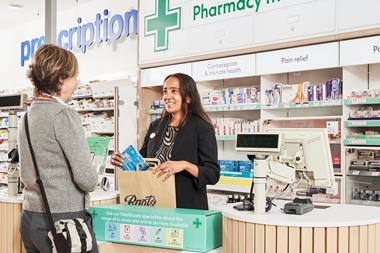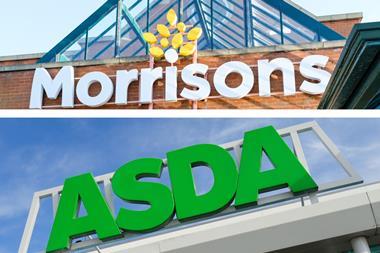I t is often claimed that the presence of powerful retailers acts as a deterrent to the development of new brands in the UK food and soft drinks market.
Retailers used to stock a wide range of brands and pack sizes within a category, in addition to an own-label version of a product.
But for some time now, the commonly held view has been that retailers are looking to minimize the number of brands they carry, while increasing the own-label range with offerings at different price points encompassing 'good', 'better' and 'best' quality variants.
Given the ongoing pressure on shelf space, the growth of own-label products has forced retailers to reduce their branded offerings. There is normally space for the brand leader and possibly its nearest competitor, but the brands in third position or lower may be facing de-listing.
This has caused most of the principal fmcg manufacturers to focus more on their leading brands. Lesser brands are not being supported and are declining.
Even ten years ago, when discussing acquisition opportunities, major brand owners indicated they were only willing to consider purchasing brands that were in the top three in their categories. Subsequently, their interest dwindled to a category's top two brands. Today, large firms are unlikely to be interested in acquiring a brand unless it is number one or has the potential to be.
Given the circumstances, it could be assumed that the prospects for launching a new brand in the UK are poor. In a recent conversation, a brand consultant claimed that 95% of brand launches in the UK market fail.
However, visiting IFE last month reminded me just how many new brands have been launched in recent years and how well some of these are doing.
I discussed this with the head of a large multinational business in the soft drinks industry. We agreed that the UK is awash with new brands and new concepts - many of which, though still modest in size, are growing at spectacular rates.
We discussed brands such as Innocent, Belvoir Cordials, Bottlegreen, Johnsons, Firefly, Feel Good Drinks, Pomegreat, Big Tom, Fever Tree and Taut.
I was told that such a wide selection of successful young brands does not exist anywhere else in continental Europe.
The phenomenon is not exclusive to soft drinks. Young brands enjoying spectacular growth include Gü, Green & Blacks, The Food Doctor, Dorset Cereals, Fruit Bowl and Eat Natural.
They are defying the idea that powerful retailers act as a deterrent to new brands by being innovators rather than "me too" products.
The teams behind these young brands have identified a gap in the market and have filled it without producing a "new and improved" version of an existing product.
How many of us were drinking smoothies before Innocent came along? How many of us were drinking elderflower before Belvoir and Bottlegreen commenced production? What a bore it was to make a spicy tomato juice before Big Tom came to the rescue. And how many of us consumed pomegranate juice before Pomegreat made it mainstream?
So, far from being brand killers, the big retailers are able to support brand growth in instances where the products are genuinely innovative. And we, the consumers, are the ones to benefit from a broader choice of products. Long may the entrepreneur spirit last.














No comments yet